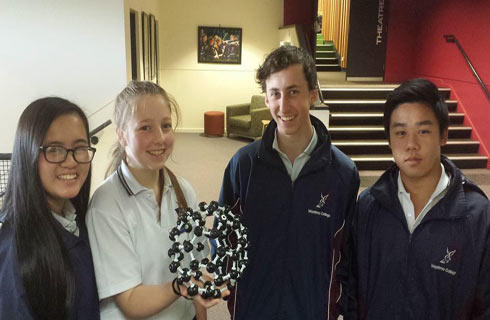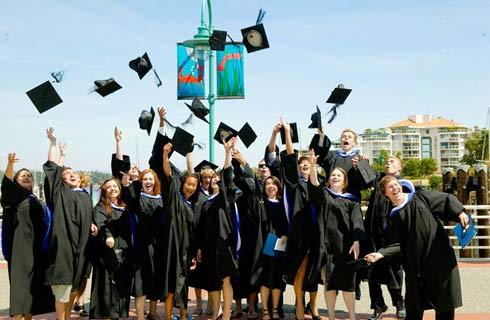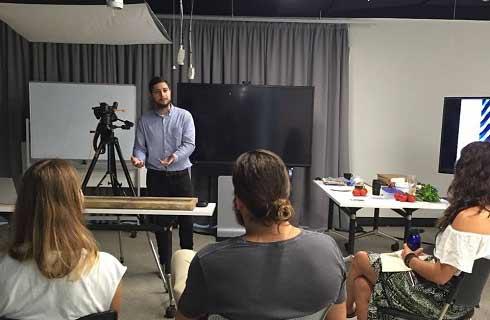Associate of Applied Science in Energy Systems Electrical Engineering Technology

学历文凭
Associate Degree

专业院系
电气工程技术

开学时间

课程时长

课程学费

国际学生入学条件
Freshman applicants must submit official secondary school mark sheets and diploma. Mailed documents must be originals or copies certified by the school principal or controller of examinations and sealed in a school envelope. Documents not in English must be translated by a certified translator. Official transcripts are also accepted by email if sent directly from the school principal or registrar. Students who do not meet minimum English proficiency requirements may apply for conditional admission, during which time they will need to be enrolled in an intensive English program, such as ISU’s IEI program, in preparation for full-time academic study at ISU. Have graduated from a high school or secondary school with satisfactory grades, received a diploma or certificate of graduation, and be eligible for admission to a major university in the country from which they graduated. Students are required to earn a grade of C- (1.7) or better in each ESET, INST, or CYBR prefixed course, a cumulative 2.0 Grade Point Average (GPA) to advance each semester, and an overall 2.0 GPA to earn an ESTEC degree or certificate
IDP—雅思考试联合主办方

雅思考试总分
5.5
了解更多
- 雅思总分:5.5
- 托福网考总分:61
- 托福笔试总分:500
- 其他语言考试:Duolingo – 85
CRICOS代码:
申请截止日期:请 与IDP联系 以获取详细信息。
课程简介
Energy Systems Electrical Engineering Technology (EET) prepares students to pursue a career in the installation, operation, adjustment, routine maintenance, inspection, test, and repair of power generation equipment. Graduates work in all fields of electrical generation with companies who design, build, operate, and maintain electrical generation systems. These generators use fossil and nuclear fuels, hydropower, wind, or other forms of energy to produce electrical power. Electrical Engineering technicians work with generators, large electrical motors, protective relaying and other high voltagehigh current electrical equipment, the interconnection wiring and control circuits, and PLC's. Solve technical problems typical of those encountered in the electrical engineering technology discipline by using critical thinking skills, current technology, and practical use of trade equipment. Work and communicate effectively in diverse teams in an industrial setting. Understand the importance to pursue lifelong learning and stay current with technical standards and codes.
相关申请

预科

奖学金

实习机会

在校学习

跨境学习

校园授课-线上开始

在线/远程学习
本校相关课程
应用科学学士

学历文凭
Bachelor Degree
下一个开始日期
课程费用总额
消防管理理学学士

学历文凭
Bachelor Degree
下一个开始日期
课程费用总额
Bachelor of Science in Health Science

学历文凭
Bachelor Degree
下一个开始日期
课程费用总额
Bachelor of Science in Health Physics

学历文凭
Bachelor Degree
下一个开始日期
课程费用总额
护理科学学士-传统

学历文凭
Bachelor Degree
下一个开始日期
课程费用总额
Bachelor of Science in Dental Hygiene

学历文凭
Bachelor Degree
下一个开始日期
课程费用总额
其他相关课程
电子系统工程技术文凭

萨省理工学院
泰晤士高等教育世界大学排名:

学历文凭
Bachelor Degree
下一个开始日期
课程费用总额
电气工程技术文凭

萨省理工学院
泰晤士高等教育世界大学排名:

学历文凭
Bachelor Degree
下一个开始日期
课程费用总额
安大略大学消防工程技术高级文凭

圣力嘉学院
泰晤士高等教育世界大学排名:

学历文凭
Bachelor Degree
下一个开始日期
课程费用总额
安大略大学电子工程技术高级文凭

圣力嘉学院
泰晤士高等教育世界大学排名:

学历文凭
Bachelor Degree
下一个开始日期
课程费用总额
动力工程技术文凭

北阿尔伯塔理工学院
泰晤士高等教育世界大学排名:

学历文凭
Bachelor Degree
下一个开始日期
课程费用总额
电气工程技术文凭

北阿尔伯塔理工学院
泰晤士高等教育世界大学排名:

学历文凭
Bachelor Degree
下一个开始日期
课程费用总额





